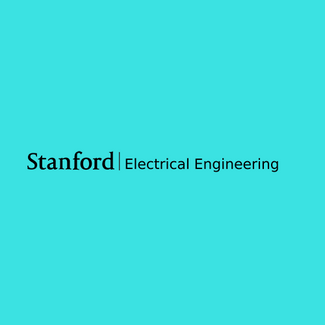
EE Colloquium: New avenues in nanophotonics and nonlinear optics for light sources and detectors
Packard 101
Abstract: In this talk, I will present some of our recent work in developing new concepts for a variety of enhanced light sources and detectors. At the heart of our results are first-principles design frameworks that we developed for predicting a variety of light-matter interaction phenomena.
In the first part of the talk, I will introduce a powerful framework called macroscopic quantum electrodynamics for describing spontaneous emission of light by arbitrary emitters into arbitrary photonic structures. Using this framework, I will show a new concept for generating high-frequency radiation such as X-rays, based on a type of two-photon emission process that can occur when fast electrons fly over nanophotonic structures. Using this same framework, I will also show how the detection of high-energy particles can be enhanced by an order of magnitude, by integrating photonic nanostructures with scintillating materials.
In the second part, I will introduce new concepts for engineering quantum properties of light, such as quantum noise. I will start by introducing a design framework, called quantum sensitivity analysis that allows us to efficiently predict how quantum noise transforms under arbitrary nonlinear optical interactions. We applied this framework to an important phenomenon in ultrafast nonlinear optics called supercontinuum generation. While long-understood as a noise-afflicted phenomenon, we predicted and observed a series of robust low-noise states that indicate the presence of quantum correlations. From there, I will show several new opportunities in engineering nonlinear nanophotonic structures to realize deeply non-classical quantum photonic states, such as Fock states and Schrodinger cat states, which are currently elusive at optical frequencies.
Bio: Nick Rivera is currently a Junior Fellow at the Harvard Society of Fellows at Harvard University. Before that, he completed his PhD in Physics at MIT (PhD 2022), as a Department of Energy Computational Science Graduate Fellow, and a Dean's Fellow of the MIT School of Science. For his thesis work, he was awarded the Andrew Lockett Memorial Fund Award from the Physics Department at MIT. He received his Bachelor's in Physics at MIT in 2016. For his undergraduate research, he received the LeRoy Apker Award of the American Physical Society.